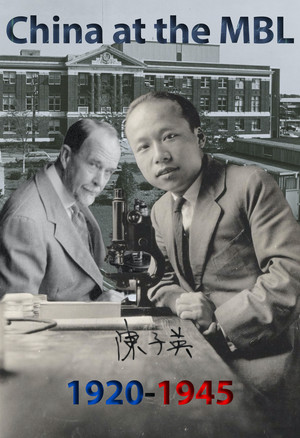Although these Chinese researchers are largely unknown in the U.S. today, many of Morgan’s students conducted excellent research and are known in China as the founders of their fields. Among the students that went to the MBL with Morgan was Li Ruqi (李汝祺;1895-1991), who spent the summers of 1924 and 1925 in Woods Hole. Shortly after his time at MBL, Li published one of the first papers about the effect of chromosomal mutation on fruit fly developments in the top journal Genetics. The paper is still considered as a classic in developmental genetics. Li received his PhD from Columbia University in 1926, becoming the first Chinese PhD graduate from Morgan’s Lab. After graduation, Li returned to China, and eventually established the first Chinese fly genetics lab at Yanjing University in Beijing. In addition to his research, Li trained the first generation of Chinese geneticists, including Tan Jianzhen (who often published under the name C. C. Tan). Tan went on to study with Morgan in the 1930s, producing many influential works, such that he was dubbed “the Chinese Morgan.” Li also translated a number of biological textbooks into Chinese, including Lester Sharp’s Fundamentals of Cytology and Christopher Raven’s Oogenesis.
Li Ruqi (李汝祺) and the Foundations of Chinese Genetics
Suggested citation
Jiang, Lijing, and Kate MacCord. 2015. "China at the MBL: 1920-1945". MBL History Project digital exhibit. https://history.archives.mbl.edu/browse/exhibits/china-mbl-1920-1945

